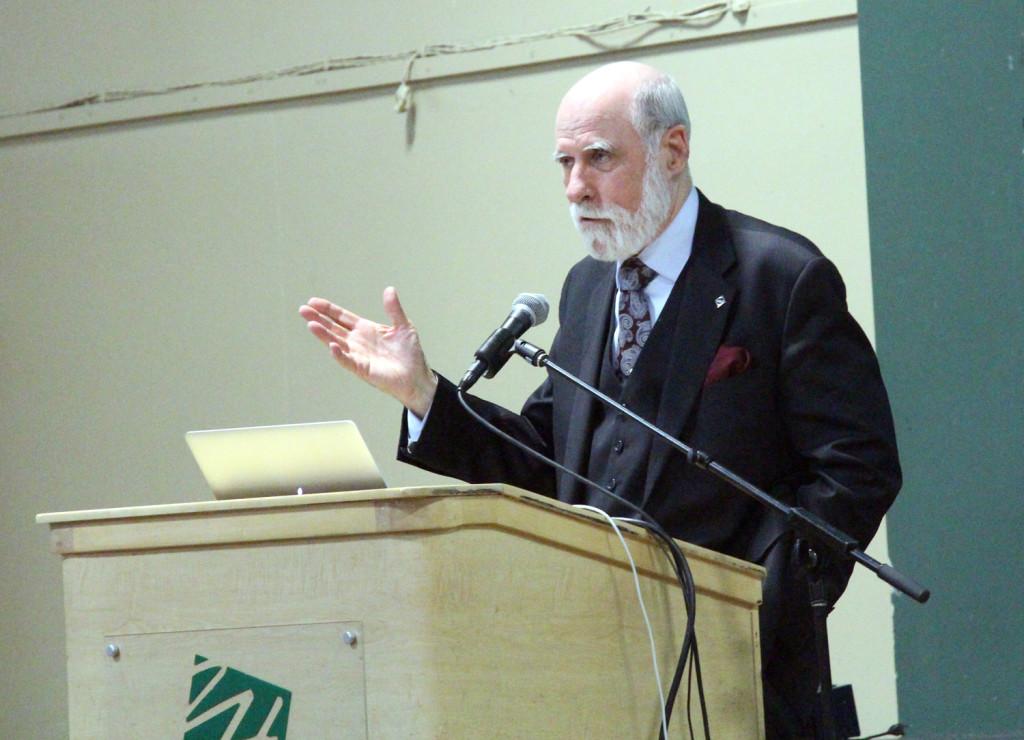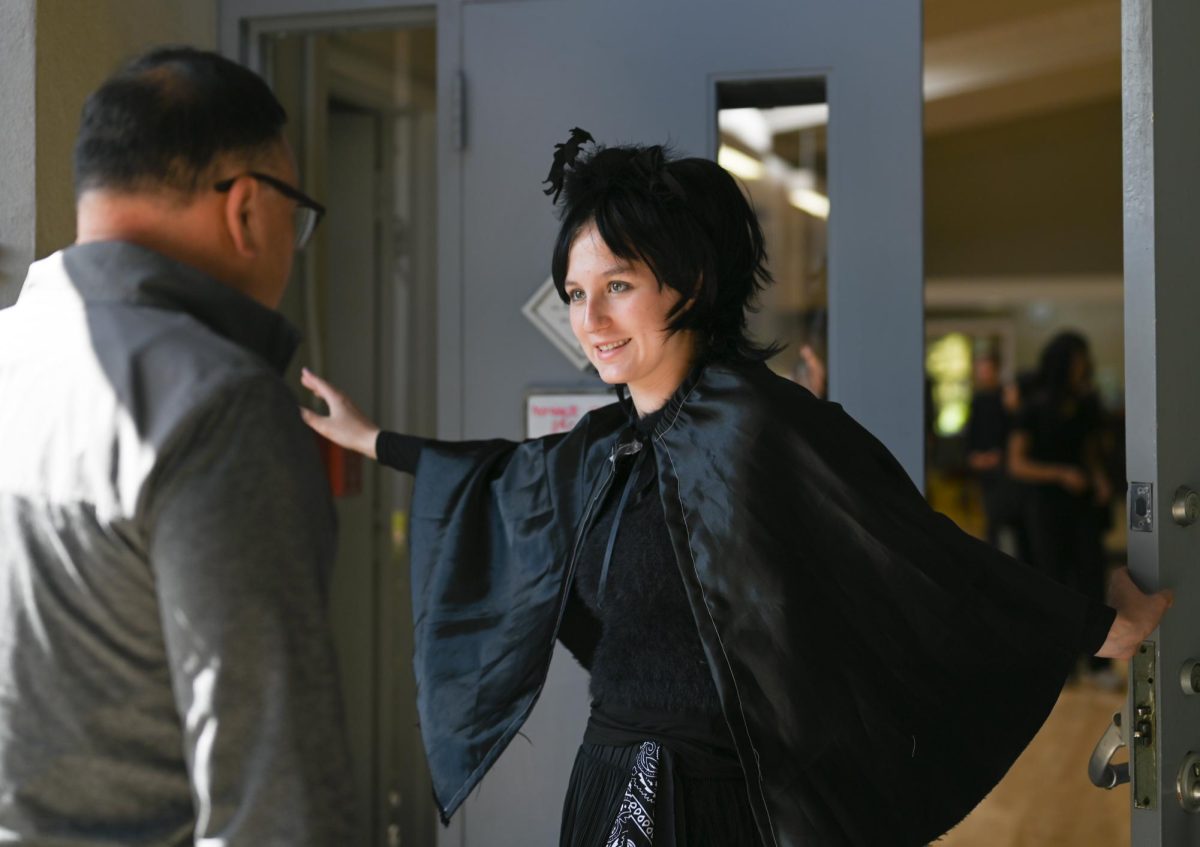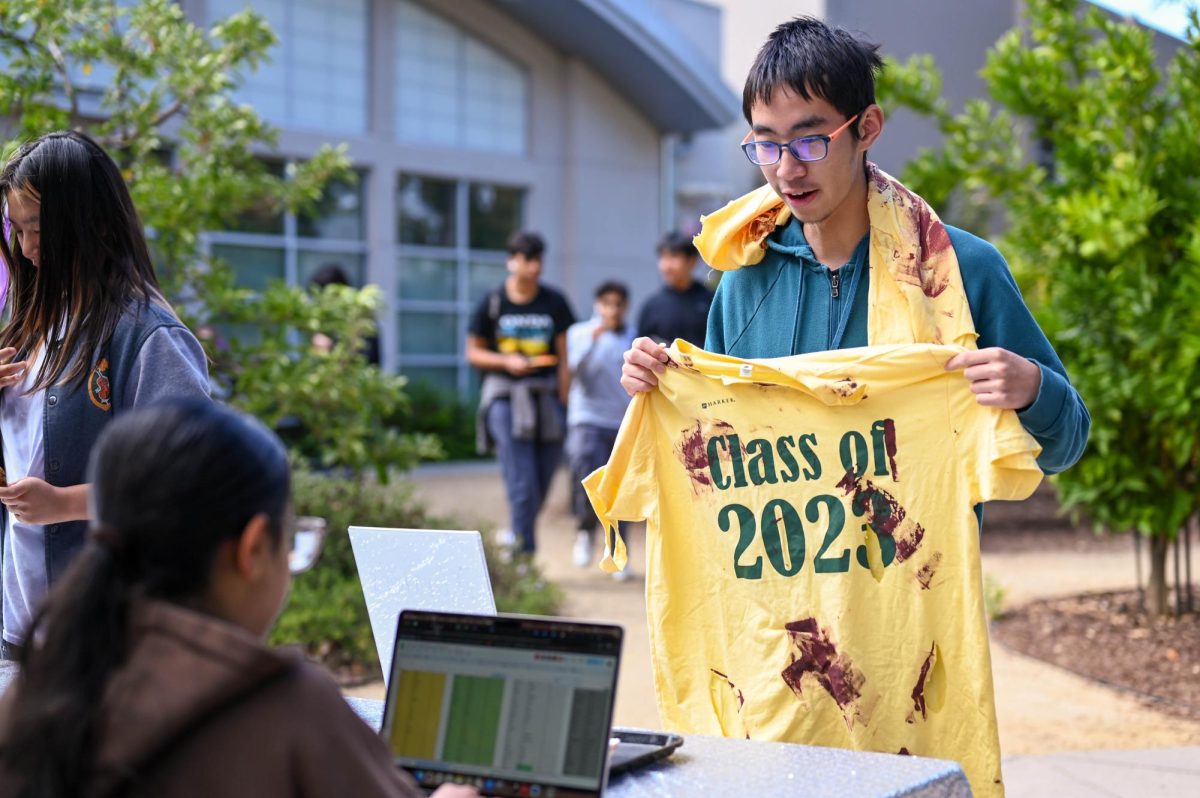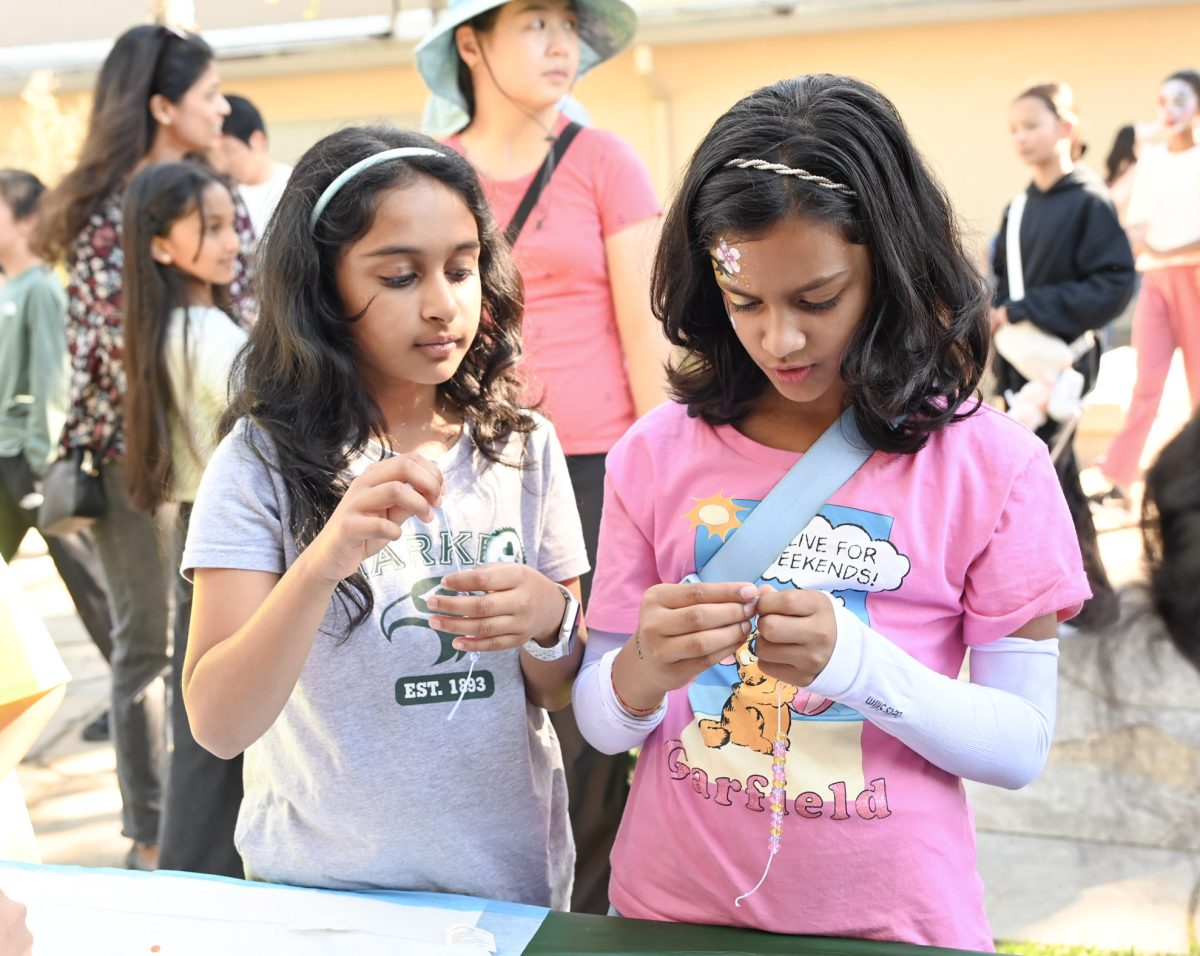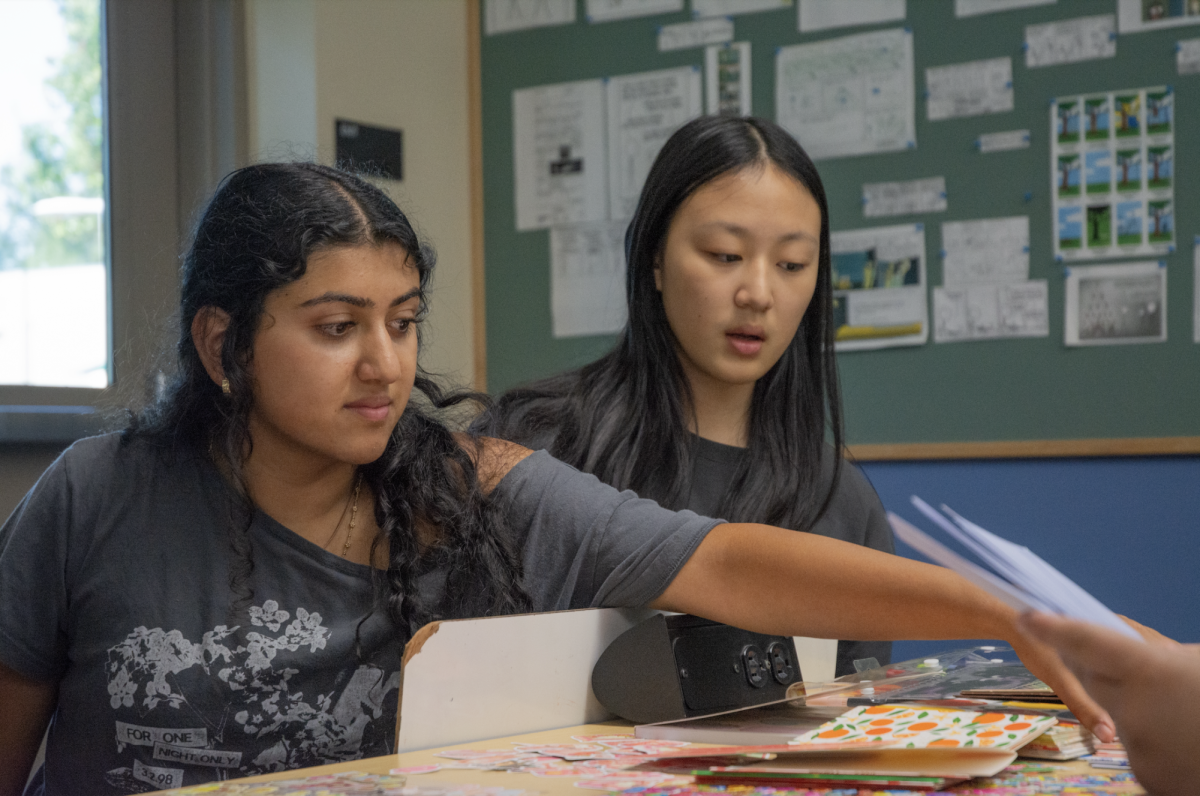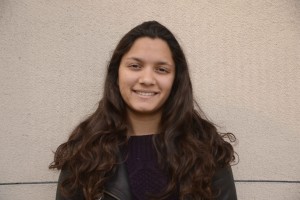During school assembly yesterday, students had the opportunity to meet and listen to Vinton Cerf, one of the two men credited with creating the Internet.
Cerf has won many awards including the Presidential Medal of Freedom and the Turing Award, an annual computer science award, for his help designing the Internet, or the ARPANet as it was known back in the 1970s. He is currently working as the Chief Internet Evangelist at Google and is very active on public policy concerning the Internet.
Much of the reason for his coming was due to the work of Zina Jawadi (11). She has been putting an emphasis on disability awareness at school, starting with her own affliction: hearing disability. Since both Cerf and his wife are hearing impaired, his visit to the school tied into her awareness campaign.
“Honestly, the results of the assembly were extraordinarily successful, and I hope that Harker students’ and faculty’s perspective on hearing loss and appreciation of hearing loss has expanded,” Zina said. “Seeing Harker so positively affected by someone who is my inspiration and my hero makes me proud, thrilled, and enthralled.”
The speech left students engaged by its inclusion of cutting edge technology in the form of the interplanetary Internet, which Cerf is working on, and Internet enabled surfboards.
For computer science teacher Richard Page, the speech brought back memories when the Internet was first invented.
“I had the opportunity to meet both Dr. Cerf and Dr. [Bob] Kahn in 1973 with a college group up from Los Angeles, and it’s something that I will never forget,” Page said. “Hearing about the very beginnings of the Internet, it was just very exciting. So for me, it’s like, ‘wow look what has happened in the 40 years from [then].’”
Page, like many of his fellow teachers, enjoyed how the topics of the speech could to the subject matter.
After his speech, a few students, such as seniors Kevin Susai and Neel Bhoopalam, stayed back into class time to ask questions or take a picture with Cerf.
“[With] his vast amount of knowledge, he could have made [the speech] in a boring way,” Kevin said. “But he found a way that was easily understandable to us as high schoolers, and that’s what made it so interesting and made me stay a couple minutes later to ask a couple of questions.”
Neel, who stayed to talk to Cerf with Kevin, was especially interested in the role Google played in the Internet.
“It was a great experience getting to meet him,” he said. “He knows so much about a lot of different topics. We asked him one question, but he was able to go on and relate it to something else and talk about a different topic, which was just as fascinating, so I thought that was really cool.”
According to several students, Cerf’s speech was memorable not only for its technological subject matter, but also for its dose of humor.
In one of his most witty lines, Cerf talked about Internet enabled bathroom scales, which send the users’ weight to the doctor. He noted that there was “one [possible] problem: your refrigerator is on the same network. So you get home and you see diet recipes [on the screen] or maybe it just refuses to open.”
Although Cerf was originally invited to talk about hearing impairment, he ended up giving students an engaging talk about not only disability but also current innovations in the world.


















![“[Building nerf blasters] became this outlet of creativity for me that hasn't been matched by anything else. The process [of] making a build complete to your desire is such a painstakingly difficult process, but I've had to learn from [the skills needed from] soldering to proper painting. There's so many different options for everything, if you think about it, it exists. The best part is [that] if it doesn't exist, you can build it yourself," Ishaan Parate said.](https://harkeraquila.com/wp-content/uploads/2022/08/DSC_8149-900x604.jpg)




![“When I came into high school, I was ready to be a follower. But DECA was a game changer for me. It helped me overcome my fear of public speaking, and it's played such a major role in who I've become today. To be able to successfully lead a chapter of 150 students, an officer team and be one of the upperclassmen I once really admired is something I'm [really] proud of,” Anvitha Tummala ('21) said.](https://harkeraquila.com/wp-content/uploads/2021/07/Screen-Shot-2021-07-25-at-9.50.05-AM-900x594.png)







![“I think getting up in the morning and having a sense of purpose [is exciting]. I think without a certain amount of drive, life is kind of obsolete and mundane, and I think having that every single day is what makes each day unique and kind of makes life exciting,” Neymika Jain (12) said.](https://harkeraquila.com/wp-content/uploads/2017/06/Screen-Shot-2017-06-03-at-4.54.16-PM.png)








![“My slogan is ‘slow feet, don’t eat, and I’m hungry.’ You need to run fast to get where you are–you aren't going to get those championships if you aren't fast,” Angel Cervantes (12) said. “I want to do well in school on my tests and in track and win championships for my team. I live by that, [and] I can do that anywhere: in the classroom or on the field.”](https://harkeraquila.com/wp-content/uploads/2018/06/DSC5146-900x601.jpg)
![“[Volleyball has] taught me how to fall correctly, and another thing it taught is that you don’t have to be the best at something to be good at it. If you just hit the ball in a smart way, then it still scores points and you’re good at it. You could be a background player and still make a much bigger impact on the team than you would think,” Anya Gert (’20) said.](https://harkeraquila.com/wp-content/uploads/2020/06/AnnaGert_JinTuan_HoHPhotoEdited-600x900.jpeg)

![“I'm not nearly there yet, but [my confidence has] definitely been getting better since I was pretty shy and timid coming into Harker my freshman year. I know that there's a lot of people that are really confident in what they do, and I really admire them. Everyone's so driven and that has really pushed me to kind of try to find my own place in high school and be more confident,” Alyssa Huang (’20) said.](https://harkeraquila.com/wp-content/uploads/2020/06/AlyssaHuang_EmilyChen_HoHPhoto-900x749.jpeg)



